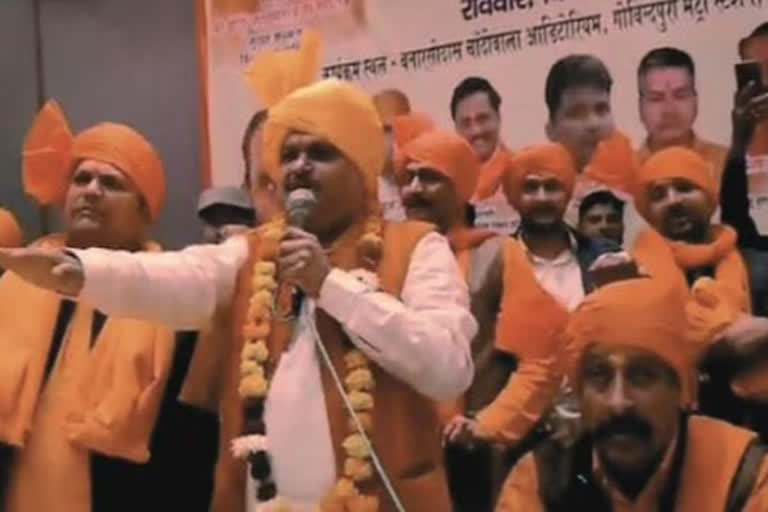New Delhi: In the latest development in the hate speech row which triggered a war of words among the political parties ahead of the Assembly Elections in five States, 32 former Ambassadors in a joint statement called for the condemnation of hate speech in all its forms and without being selective with regard to its 'religious, ethnic, ideological or regional origin'.
The signatories included secretary Kanwal Sibal and former ambassador Veena Sikri and Lakshmi Puri.
The letter raised the issue of double standards and selectivity in targeting the Modi government. Registering their concerns, ex-Indian Foreign Service officials said that it had become a practice to target PM Modi's government over hate speeches (referring to the incidences of Haridwar and Chattisgarh Hate Speech) by any fringe group or by disturbing elements and highlighted that double standards and selectivity in condemnation raise questions about motives and morality.
"A motley group of activists, many of them known leftists with sympathies for Maoists, joined by some former civil servants and military figures who have held the highest positions in their careers, as well as some sections of the media, have been conducting a sustained smear campaign against the present government on its presumed violations of the secular ethos of the country. This has taken effectively an increasingly anti-Hindu tenor under the guise of anti-Hindutva".
"The latter has become a convenient peg for 'secular' posturing, adopting virtue-signaling constitutional' positions, relying on the bloated vocabulary of 'Nazism' and 'genocide' to gather international attraction and leverage it to bring odium to the Modi government," the letter stated.
The joint statement by the ex-IFS officials also condemned the anti-minority hate speeches, referring to Haridwar Hate speeches row where men robed in Saffron attire uttered extreme venomous speech targeting minorities. The statement also added that such kinds of statements should be condemned by all right-thinking people.
Questioning the motives of the activists, critics, and even opposition leaders, the joint statement said, "But when the import of these is exaggerated out of all proportion and the rantings by fringe elements are seen as representative of the sentiments prevailing in ruling circles, and as laying the agenda of what lies ahead at the national level, then the political leanings and moral integrity of the critics can be rightly questioned,".
The ex-envoys also took a jibe at the media personnel for indulging in dubious practices, for their political bias by using utterances like 'genocide' to accentuate the impact of such hate speeches on a particular community. They also attacked the media and critics for not just criticizing the government over hate speech but also dubbed these as "an all-round failure of the police, the judiciary, and other constitutional bodies."
Also Read: SIT books nine in Dharma Sansad hate speech, one accused claims death threat
It also raised a pertinent issue by highlighting that the communal violence and the religious divide did not suddenly emerge right after the Modi government came to power in 2014.
"PM Modi’s message of Sabka Saath, Sabka Vikas, Sabka Vishwas, Sabka Prayas, is mocked by alleging that this is meant just for one community (the majority community), and not for all. This is in line with attacks on ‘majoritarianism’, which is a way to question the mandate that the democratic process gives to the political party that wins elections legitimately and considers itself obliged to the electorate to implement its declared agenda lawfully," said the statement.
"If a handful of religious figures speak of installing a Hindu Raj in the country, is that a reason for former generals, admirals, IAS, IFS, and IPS officers of the highest rank to paint a crisis scenario?" the ex-envoys added. "Does this reflect some frustration at not having obtained what they may have aspired for as recognition and reward from the government after superannuation? Are they investing in a potential political change at the centre?" they further asked.
The statement also highlighted that one-sided lessons to Hindus can never establish a secular India and threw light upon arm-chair critics who chose to ignore or dismiss equally virulent calls for violence and threats made not just by fringe groups but by mainstream political figures who rated that about needing only 15 minutes to wipe the entire majority community.
"Another party had incited people from one community to come together “to create four mini Pakistans in India".



